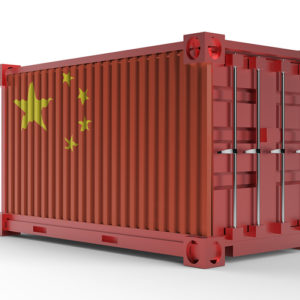The past few years have seen a sea change in U.S. foreign policy. There is now bipartisan acknowledgment in Washington that China’s stunning rise to global preeminence has come at U.S. expense—and has cost the United States millions of good jobs along with critical manufacturing capacity. As a result, President Biden has come into office knowing that he must confront Beijing on a wide range of strategic concerns. Fortunately, the new president is wasting little time. As his latest executive order makes clear, the time has come to rapidly rebuild key industries in which the nation has become heavily import-dependent.
America’s predicament is obvious: The United States is now worryingly dependent on China and other nations for key strategic commodities. Americans witnessed this quite clearly in the past year. At the start of the COVID-19 pandemic, for example, U.S. hospitals were left scrambling to find medicines and personal protective equipment amidst import shortages. More recently, U.S. automakers were forced to halt production due to a shortage of semiconductors from Taiwan and Korea.
There’s more, though. The United States has also become heavily dependent on China for the metals and minerals needed to manufacture everything from electronics and computers to advanced weapons systems. In fact, China now supplies 95 percent of the world’s rare earth metals—and has become the dominant supplier for 23 metals and minerals considered critical to U.S. national security.
This matters in particular for emerging industries like electric vehicles (EVs)—especially since President Biden has staked part of his “Build Back Better” agenda on American-made EVs. However, electric vehicle batteries require roughly 20 different metals and minerals. And EV motors use rare earth metals like neodymium and dysprosium. These are commodities on which the U.S. now relies heavily on China.
President Biden recognizes this Achilles heel, though, and his executive order requires federal agencies to report on the nation’s supply chain vulnerabilities within the next 100 days. Specifically, he’s ordered an immediate review of four key sectors: semiconductors, EV batteries, critical minerals, and medical supplies.
These industries are crucial to U.S. economic security, and there’s little doubt about the vulnerabilities involved. With semiconductors, for example, the United States once led the world in chip manufacturing. Today the U.S. depends on imported semiconductors—and only manufactures 12 percent of global supplies.
With EV batteries, China will soon be home to 107 lithium-ion battery mega-factories. In contrast, the U.S. has only nine such factories in the planning stages. This highlights Beijing’s growing monopoly over much of the world’s metal and mineral supply chains. Significantly, the U.S. once mined rare earths domestically. But poor planning in recent decades has allowed this crucial industry to slip away.
Biden’s executive order does more, though. Over the next year, the president wants his cabinet to find out exactly what’s left in the national cupboard—including “extinct, threatened, or single-point-of-failure capabilities.”
Realistically, this sort of top-to-bottom inventory may be grueling—but it’s long overdue and urgently needed. It’s not even clear just how degraded some of America’s industrial and military capability may be. Helpfully, the president’s executive order recognizes that the nation is going to need “reforms to domestic and international trade rules” as well as federal “incentives” to bring back the factories and skilled workers necessary for greater national self-sufficiency.
Apparently, the harsh reality of the current semiconductor shortage galvanized the president to act. White House Press Secretary Jen Psaki recently explained that the administration “will be focused on identifying the immediate actions we can take, from improving the physical production of those items in the U.S. to working with allies to develop a coordinated response to the weaknesses and bottlenecks that are hurting American workers.”
The United States has lost market share domestically and globally for more than 20 years. And that has contributed to the nation’s decline relative to China. However, addressing failed trade policies and rebuilding industrial capacity can provide a much-needed boost for the economy, national security, and middle-class job creation. The American people would be strongly in favor, too, which means now is the time for President Biden to Build Back Better.

